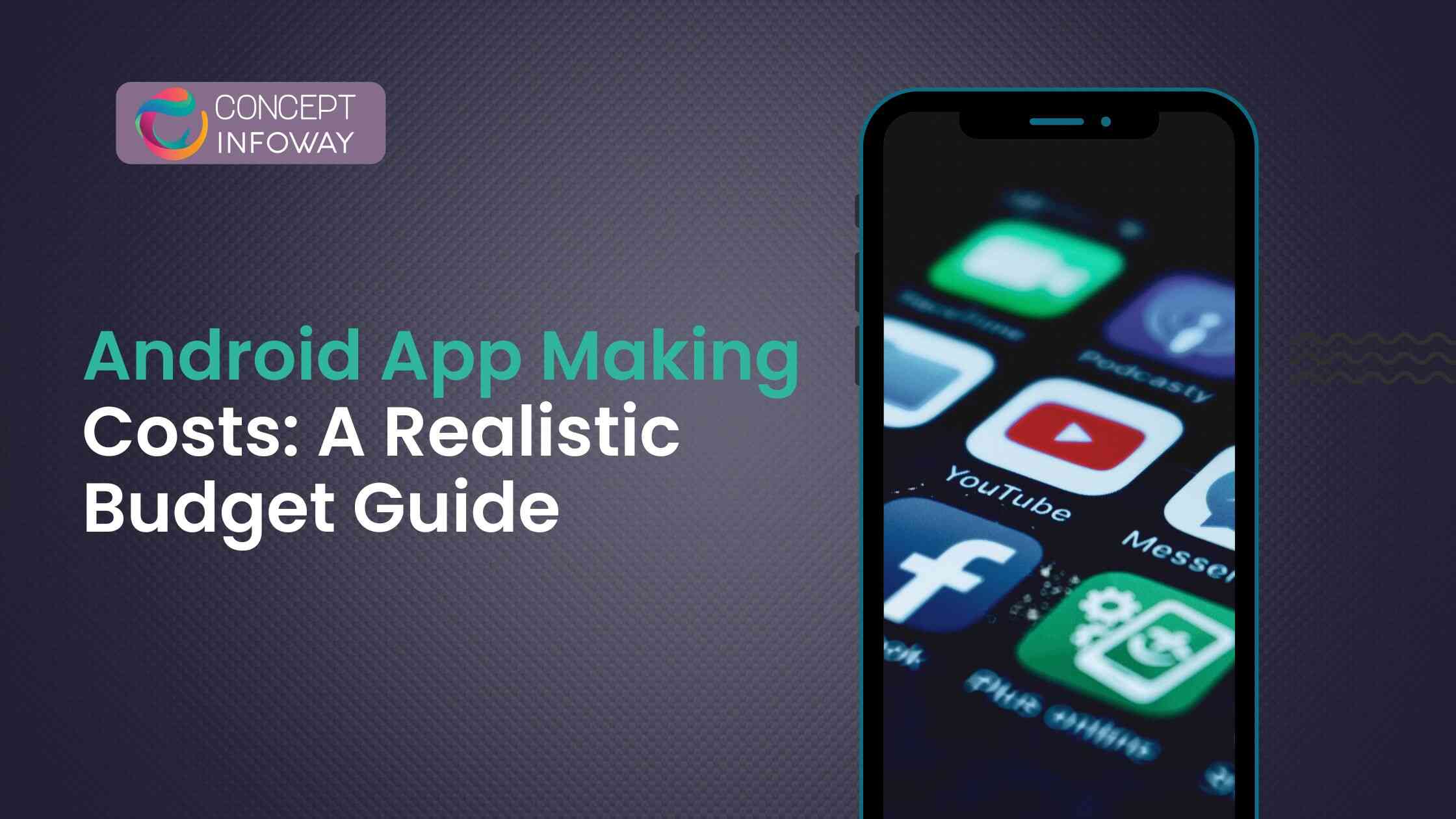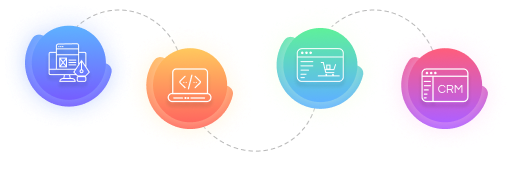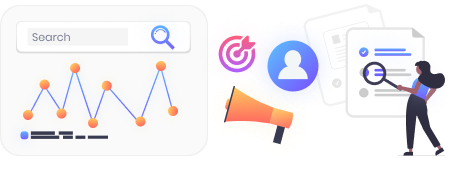
Android App Making Costs: A Realistic Budget Guide
In today’s digital-first world, mobile applications have become essential for businesses, startups, and even individuals looking to engage users, streamline services, and increase brand value. Among the two dominant platforms—iOS and Android—Android holds a significant global market share, making android app making an essential investment. However, one critical question often arises: How much does it cost to build an Android app?
In this comprehensive guide, we’ll explore the realistic costs of android app development, what influences pricing, how to plan your budget, and how to choose the right android app making services. Whether you’re a business owner or a startup founder, this blog post will offer the insights needed to make informed decisions.
Why Android App Making Is Worth the Investment
With over 3 billion Android devices in use globally, the Android platform provides unparalleled access to users across diverse demographics and locations. Investing in android app making enables businesses to:
- Reach a global audience
- Enhance customer experience
- Increase revenue through in-app purchases and ads
- Stay competitive in an evolving market
Unlike iOS, Android offers a more flexible ecosystem, especially for startups seeking cost-effective solutions from reliable android app services.
Key Cost Factors in Android App Making
1. App Complexity
The more complex the features, the higher the development cost. A basic utility app may cost far less than a feature-rich eCommerce platform or a social media app.
2. UI/UX Design
Design is not just about aesthetics—it is about user experience. Professional android app services incorporate intuitive design to improve usability, but this comes at a cost.
3. Backend Development
Apps that require user authentication, real-time syncing, or data storage need a backend system, which increases both time and cost.
4. Third-party Integrations
Payment gateways, chatbots, analytics tools, and other integrations can significantly add to the cost of android app.
5. Platform Support
Although you are focused on Android, consider future scalability. Cross-platform capabilities or versions for tablets and wearables can raise expenses.
Types of Android Apps and Their Budget Ranges
| App Type | Approximate Budget (USD) |
| Basic Utility App | $5,000 – $10,000 |
| Content-Based App | $10,000 – $20,000 |
| eCommerce App | $15,000 – $50,000+ |
| On-Demand Service App | $25,000 – $100,000 |
| Social Media App | $30,000 – $150,000+ |
| Game Development App | $50,000 – $250,000+ |
These figures vary significantly based on geography, the complexity of features, and the app making firms you hire.
Cost Breakdown: Android App Making Services Explained
Understanding where your money goes during android app making is essential for better budgeting.
Development Costs
This includes frontend (user-facing) and backend (server-side) coding. Costs vary by:
- Hourly rates of developers
- Geographic location
- Time required
Design Costs
Custom UI/UX design, animations, branding, and icons may contribute to 10–20% of the overall budget.
Testing and QA
Ensure a bug-free experience, reliable android app services spend 15–25% of the budget on quality assurance and testing.
Deployment Costs
Publishing your app on Google Play involves a one-time $25 developer fee, plus potential costs for promotional materials, ASO (App Store Optimization), and updates.
Looking for Custom Android App Making Services?
Contact Us Today!Hidden Costs You Shouldn’t Overlook
Even the most detailed project plan can miss these hidden costs:
- Maintenance and updates: Expect to spend 15–20% annually for ongoing support.
- Marketing and user acquisition: Costs can exceed the development budget if you are aiming for rapid growth.
- Legal and licensing: Includes privacy policies, terms of service, and open-source software licensing.
- Server and cloud hosting: Monthly or annual fees depending on app usage.
Tips for Reducing Android App Development Costs
- Define a clear scope: Avoid scope creep by clearly documenting features.
- Go MVP first: Build a Minimum Viable Product and expand later.
- Use cross-platform frameworks: If future iOS support is planned.
- Choose experienced app making firms: While rates might be higher, the long-term savings from efficient development are significant.
- Leverage open-source components: Save time and reduce coding efforts.
How App Making Firms Determine Pricing
Unlike freelancers who may offer a flat or hourly rate, professional app making firms utilize a more structured and comprehensive approach to pricing. This ensures accurate estimations based on the full scope of the project and the value delivered. Understanding how these firms determine pricing can help you assess proposals more effectively and align your budget with realistic expectations.
Here are the key factors that influence pricing models in android app services:
• Project Complexity
The complexity of your app is one of the biggest cost drivers. An app with basic functionality—like a calculator or a news reader—requires fewer hours than a robust solution like a ride-hailing platform or a social networking app. Complex features such as real-time syncing, geolocation, multi-language support, and advanced user permissions increase both development time and cost.
Examples of complexity multipliers:
- Custom animations or transitions
- Real-time data exchange
- Offline functionality
- Advanced filtering or search algorithms
• Timeline and Urgency
Tight deadlines often mean higher costs. If a client requires delivery within an accelerated timeframe, app making firms may need to allocate additional resources, such as working overtime, expanding the development team, or parallelizing tasks—all of which add to the project cost.
Standard delivery vs expedited delivery could result in a 20–50% pricing difference.
• Required Technologies
Modern apps often require integration with cutting-edge technologies. The inclusion of AI, AR/VR, IoT, blockchain, or machine learning significantly raises the development cost due to the need for specialized skills and extended R&D time.
For instance:
- Adding facial recognition using AI can increase costs by 15–25%.
- Integrating blockchain for secure transactions can add thousands to the budget.
• Engagement Model
Different engagement models influence how pricing is structured:
- Fixed Cost Model: Best for clearly defined, short-term projects with minimal scope changes. Offers predictability but less flexibility.
- Hourly Rate Model: Ideal for agile development and evolving requirements. Costs are tied directly to hours worked.
- Milestone-Based Model: Payment is made in phases based on agreed-upon deliverables, balancing flexibility and budget control.
Each model offers pros and cons depending on your project’s nature, risk tolerance, and cash flow preferences.
• Post-Launch Support Requirements
Professional android app firms typically include optional or mandatory post-launch support in their pricing models. This may involve:
- Routine bug fixing
- OS compatibility updates
- Server monitoring
- Feature enhancements
- Technical support
Depending on the duration and scope of support, this could add 15–30% to the total project cost but offers peace of mind and sustained app performance.
Tiered Pricing Packages
To simplify decision-making, many top-tier android app services offer tiered pricing structures. These packages often include:
| Package | Includes | Ideal For |
| Basic | MVP development, essential features, limited support | Startups, Proof of Concept |
| Standard | Custom UI/UX, moderate feature set, post-launch support | SMEs, growth-stage apps |
| Premium | Advanced features (AI, AR, etc.), full-stack development, long-term support | Enterprises, large-scale apps |
This approach allows clients to choose an option that fits their budget while clearly understanding what is included.
Freelancers vs App Making Firms: A Cost Comparison
| Criteria | Freelancers | App Making Firms |
| Cost | Lower upfront | Higher but more reliable |
| Expertise | Varies | Well-rounded, experienced teams |
| Support | Limited | Full lifecycle support |
| Accountability | Risk of abandonment | Legally bound contracts |
| Speed | Slower for large projects | Faster and scalable |
While freelancers might seem budget-friendly, app making firms offer more structure, transparency, and quality assurance for professional android app development.
Budgeting for Long-Term Success
When budgeting, it is crucial to look beyond just initial development. Building a high-quality Android app is only the first step—the real journey begins after launch. Without proper financial planning for post-launch needs, even the most feature-rich apps can lose relevance, face technical issues, or fail to retain users.
Here are some key long-term budget components to factor in:
• App Scaling
As your user base grows, your infrastructure needs will evolve. More users mean more server resources, increased database storage, and possibly load balancers for handling traffic surges. Planning for scalability from the start avoids costly rebuilds later and ensures your app performs well even under high demand.
Budget tip: Allocate funds for infrastructure upgrades, such as cloud hosting expansion (AWS, Google Cloud), backend optimization, and load testing.
• Security Updates
Security threats evolve constantly. Without regular updates, your app may become vulnerable to data breaches, malware, and compliance issues. Keeping your app secure is not just about protecting user data—it is also about safeguarding your brand reputation and avoiding legal consequences.
Budget tip: Reserve part of your budget for regular security audits, patch releases, and compliance with evolving data protection laws (e.g., GDPR, HIPAA).
• User Analytics Integration
Understanding how users interact with your app is key to continuous improvement. Integrating tools like Firebase Analytics, Mixpanel, or Google Analytics allows you to collect data on user behavior, retention rates, session times, and in-app navigation patterns.
Budget tip: Invest in both the initial integration and periodic analysis of user data to guide future feature development and UI/UX enhancements.
• Push Notification Management
Push notifications are powerful tools for user engagement—but only when used effectively. Managing them strategically involves audience segmentation, personalization, scheduling, and performance tracking.
Budget tip: Set aside funds for services like OneSignal or Firebase Cloud Messaging, as well as for creating engaging notification content and A/B testing different strategies.
• Customer Support Mechanisms
An overlooked but essential aspect of long-term success is in-app customer support. Whether it is via live chat, FAQs, or ticketing systems, offering quick support can boost user satisfaction and reduce app abandonment rates.
Budget tip: Budget for third-party support integrations (like Zendesk or Freshdesk), chatbot setup, or a dedicated support team to manage user inquiries and feedback.
What Makes Concept Infoway a Top Android App Making Company?
Proven Expertise in Android App Making Services
With over two decades of industry experience, Concept Infoway has earned a reputation as one of the most reliable app making firms globally. Our team understands the nuances of android app development and delivers custom solutions tailored to business goals.
Full-Spectrum Services
From ideation to launch, we offer complete android app services, including:
- UI/UX Design
- Native and hybrid development
- API integrations
- Testing and quality assurance
- Post-launch maintenance
Competitive Pricing
We provide transparent pricing structures and offer flexible engagement models, ensuring top-tier android app without hidden costs.
Global Clientele and Trust
Concept Infoway has successfully delivered mobile apps to clients across the USA, UK, Australia, and India. Our portfolio spans industries like healthcare, retail, logistics, and education.
Dedicated Team Approach
Every project at Concept Infoway receives a dedicated project manager and team of Android specialists. This ensures timelines are met and client expectations are exceeded—consistently.
Frequently Asked Questions – FAQ
How much does android app making typically cost?
The cost of android app making generally ranges from $5,000 for a basic app to over $100,000 for complex, feature-rich applications. Pricing varies based on features, design, and integrations. we offer tailored packages to suit different budgets without compromising on quality.
What factors influence android app making costs the most?
Several elements impact android app making costs, including app complexity, user interface design, backend infrastructure, integration needs, and timelines. Choosing an experienced firm like we ensures that every dollar is spent strategically for maximum value.
How can I reduce the cost of android app making without compromising quality?
To reduce android app making costs, prioritize essential features first by launching a Minimum Viable Product (MVP), reuse components when possible, and choose a development partner who can optimize workflows. We provides scalable solutions with cost-efficiency in mind.
Do app making firms offer post-launch support?
Yes, reputable firms like we offer complete post-launch support. This includes updates, bug fixes, security patches, and performance monitoring to ensure your app runs smoothly and adapts to changing user or business requirements over time.
What engagement models do android app making companies offer?
Android app making companies typically offer fixed-cost, hourly, or milestone-based engagement models. we provide flexible engagement models tailored to client needs, ensuring transparency, timeline accuracy, and long-term collaboration success.
Are there any hidden costs in android app making?
Often overlooked costs in android app making include hosting, third-party API fees, maintenance, marketing, and compliance updates. With Concept Infoway, you get a clear and transparent quote upfront, so there are no surprises down the road—just reliable partnership.
Why choose Concept Infoway for android app making?
Concept Infoway combines 20+ years of IT expertise with a dedicated team of Android specialists to deliver end-to-end android app making solutions. From planning to post-launch support, we ensure quality, innovation, and unmatched client satisfaction at every step.
Conclusion
Android app making is both an art and a science. It is not just about coding an app—it is about creating a digital product that engages users, drives business value, and adapts to changing market demands. While the costs can vary widely, understanding what goes into app development allows you to budget smarter and invest wisely.
Whether you choose freelancers or expert app making firms, or partner with leading providers like Concept Infoway, planning and knowledge will always be your biggest assets.
For businesses ready to take the leap into android app, remember that cost is only one part of the equation. Quality, scalability, and user satisfaction are equally important. Choose wisely, plan thoroughly, and your investment will pay long-term dividends.

Why Your Business Needs Expert Testing Automation Services












